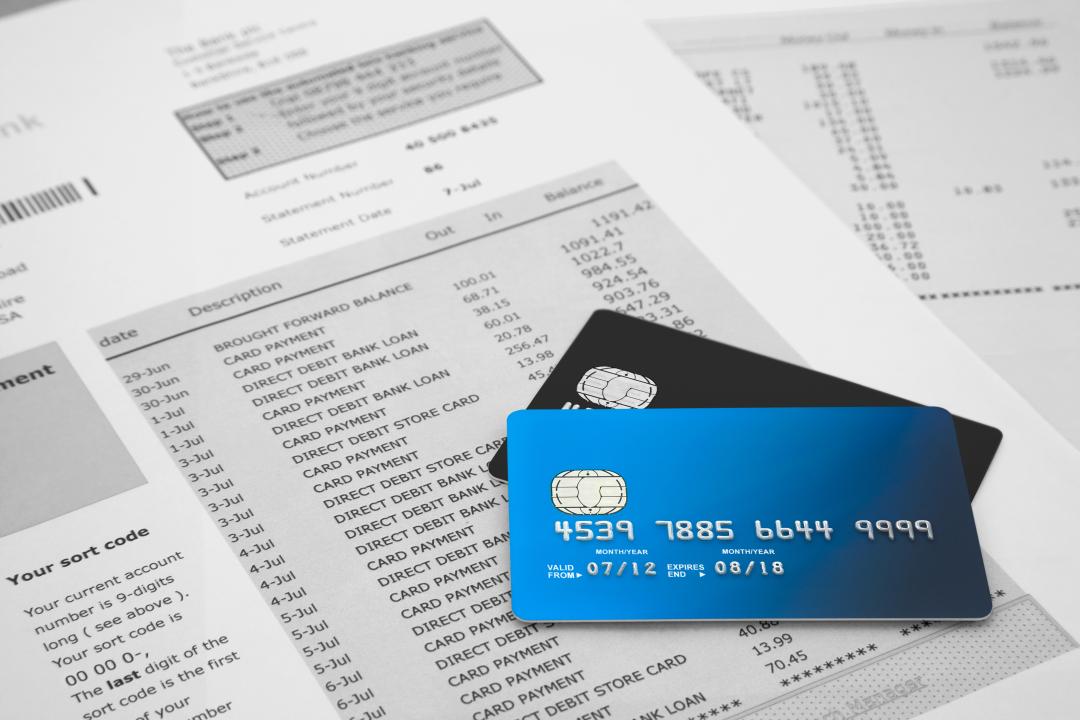10 mistakes people commonly make with their banking, according to bank tellers

jason cox // Shutterstock
10 mistakes people commonly make with their banking, according to bank tellers
bank cards with bank statements in background
With most people living busy lives, juggling work, family, and social obligations, things like banking are probably not top of mind.
You probably think about your banking only when you pay bills online or go to the ATM, but this may not be nearly enough consideration to avoid making some costly mistakes. What you don’t know or haven’t paid attention to can eat into your savings or cause financial problems that are better to avoid.
GOBankingRates spoke with Kimberlie McGee, currently a head teller at Addition Financial Credit Union in Florida, and Sherry Dvorak, a teller and manager of Amalgamated Bank of Chicago’s Warrenville branch to uncover the 10 mistakes people commonly make but should avoid with their banking.
1. Failing To Review Account Statements
One of the simplest mistakes in banking is an important habit to break: not checking your bank statements, McGee said.
“Not checking statements regularly can lead to missing errors, fraudulent activity or unnecessary fees,” she explained. “Not to mention that paper statements you’re not keeping track of could potentially result in fraud if someone else finds them first.”
2. Overlooking Fees
Not all bank accounts are free — and some may have fees if your account drops below a certain amount.
“Many consumers forget to consider maintenance fees when choosing a bank account, which can add up over time,” McGee said.
3. Ignoring Interest Rates
When it comes to savings accounts, McGee said, “Some consumers keep funds in accounts with low interest rates, missing out on potential earnings.”
High-yield savings accounts can net you significant extra income when your balance is high enough and help your money outpace inflation.
4. Using ATMs from other banks
One of the ways banks reward loyalty is by penalizing you for using other banks’ ATMs.
“Using ATMs from other banks can lead to costly fees, especially if done frequently,” McGee said. Additionally, fees can accrue from “using ATMs at gas stations or other establishments, where fees come from utilizing the ATM and additional fees [come] from that financial institution,” McGee explained.
Additionally, Dvorak urged, “Don’t use ATMs in locations that are less secure than banks,” such as in bars, casinos, or convenience stores, “because they often have skimming devices installed that can steal your account information and be used to commit fraud.”
5. Not utilizing online and mobile banking
If you’re still paying your bills the old-fashioned way — through checks in the mail — and only checking your paper statements, you’re missing out on the convenience and efficiency of online and mobile banking services, McGee said.
Dvorak added that “delays in mail delivery could result in your check arriving after the due date and trigger a late payment fee.”
Plus, she pointed out that many utilities will even let you schedule recurring payments in advance every month, so you can make sure your bills are always paid on time. “You’ll save on late fees — and better yet, you’ll have less to keep track of.”
6. Overdrafting accounts
“Careless spending or not keeping track of account balances can lead to costly overdraft fees,” McGee warned.
This happens when you don’t keep track of your transactions and continue to use their debit cards after the money is spent.
7. Ignoring security practices
Failing to use secure passwords, enable two-factor authentication and monitor for suspicious activity can leave accounts vulnerable to fraud, McGee warned. Make sure you’re on top of your security, and don’t leave it to chance.
“Senior customers or members continue to use checks, which can get lost in the mail, resulting in stop-payment fees and cost in ordering more checks,” McGee said. “This can also lead to potential fraud or having to change their account information.”
8. Not maintaining minimum balances
Some bank accounts assess a fee if your average balance for the month falls below a specified amount, Dvorak said, or even if your balance falls below the minimum for one day.
“Make sure you know whether your account has a minimum balance requirement, and maintain a large enough balance to avoid a fee,” she said.
9. Ignoring limits on transactions
Some types of accounts — usually savings accounts — will assess a fee if you exceed a set number of transactions every month, Dvorak pointed out. “If your account has one of these thresholds, plan ahead so you can make larger but less frequent withdrawals and avoid paying fees.”
10. Not keeping your primary account safe
If you engage in account transactions that are higher risk, such as online purchases or travel expenses, Dvorak recommended you think about having a separate checking account just for these. “If your [debit] card is compromised, you can quickly disable it and still make your normal day-to-day purchases out of your primary account.”
A few small changes in your banking habits can lead to financial security and money savings.
This story was produced by GOBankingRates and reviewed and distributed by Stacker Media.
![]()
